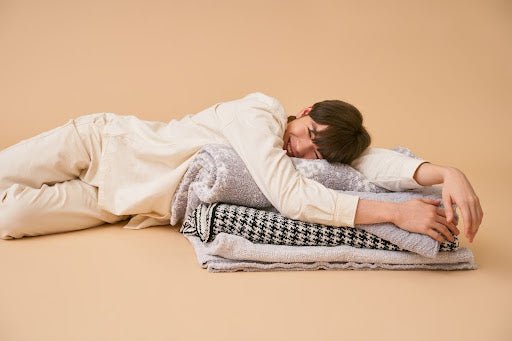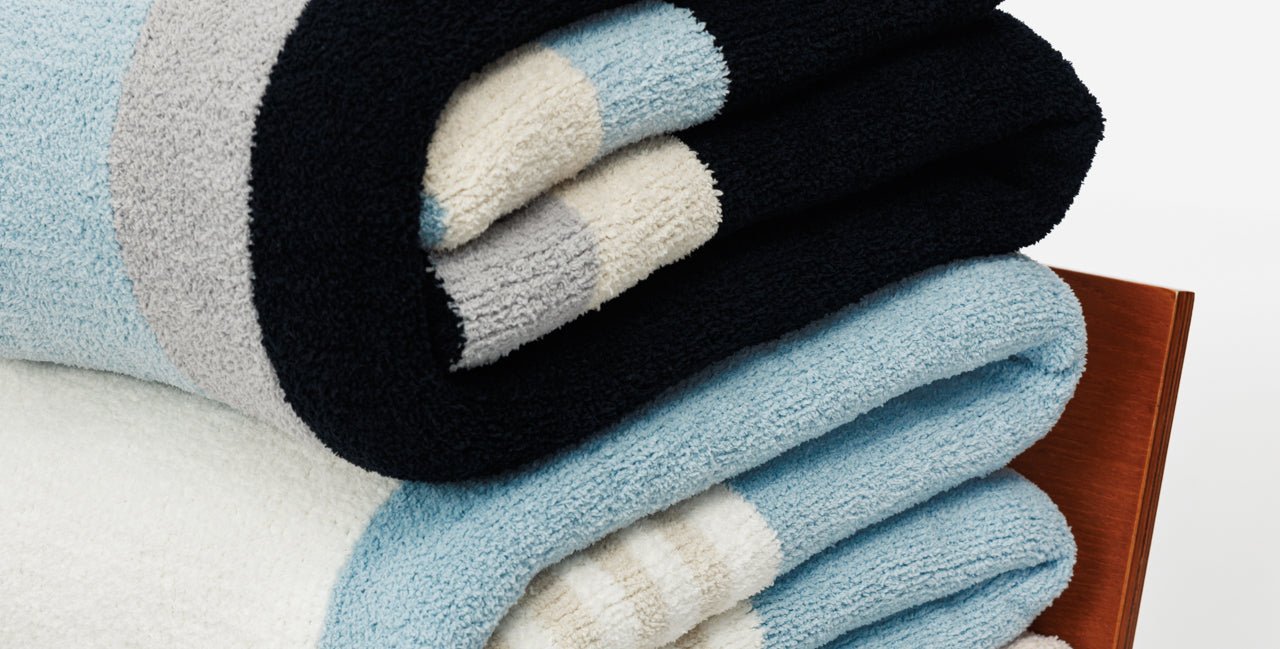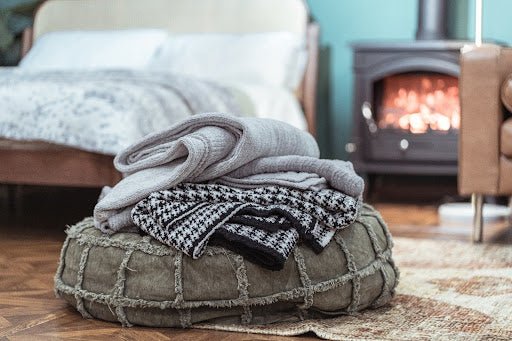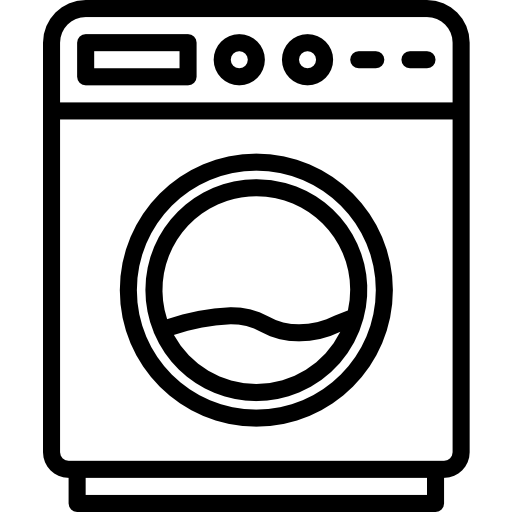
How to Improve Sleep Hygiene for Better Rest
We all know the importance of sleep. A good night's rest is essential for our physical and mental health, impacting everything from our energy levels and mood to our focus and immune system function.
Yet, for many of us, drifting off to sleep can feel like a battle. Doom-scrolling on your phone every night, tossing and turning for what seems like hours is a frustrating experience that can leave us feeling anxious to fall asleep and exhausted the next day.
Keeping good sleep hygiene, or sleeping habits, can significantly and positively impact the sleep quality you get every night, giving way to a healthier body and a clearer mind. Read on below to find out how to improve your sleep hygiene.
The Effects of Sleep Deprivation
Before diving into solutions, let's acknowledge the consequences of not getting enough sleep.
Chronic sleep deprivation can have a significant impact on our well-being. In the short term, we might experience fatigue, difficulty concentrating, and irritability.
However, the long-term effects can be even more concerning. Research shows correlation between sleep deprivation and chronic health problems like heart disease, diabetes, and even obesity.
Emotions we feel throughout the day are also processed during sleep. That’s why lack of sleep can also worsen mental health conditions like anxiety and depression.
If you're struggling to fall asleep regularly, there are a few steps you can take to get your sleep back on schedule.
The following tips can help you improve your sleep hygiene.
Tips to Improve Sleep Hygiene
1. Create an environment conducive for sleeping
Our surroundings play a significant role in our ability to fall asleep. The ideal sleep environment is cool, dark, and quiet. This might involve keeping your bedroom temperature slightly cooler than usual, investing in blackout curtains to block out light, and using earplugs or a white noise machine to minimize distractions.
Doctors recommend sleeping within the 15.6-20 degrees Celsius range, as our internal body temperature naturally drops during night time, signaling our body that it’s snooze time.
For a person with a healthy circadian rhythm, their body will naturally produce melatonin, a hormone that signals the body that it’s time to sleep, as the night progresses. When it’s dark, the body will also trigger that production of melatonin in the body, making it easier to fall asleep.
2. Get More Sunlight
If you feel like your circadian rhythm is out of sync and you don't feel sleepy at night, there's a simple (and free) trick you can try to improve your sleep hygiene. Make getting natural sunlight a priority first thing in the morning, ideally within the first hour of waking up. Try to get at least 30 minutes of morning sunlight everyday.
This exposure to natural light helps regulate your body's internal clock, letting it know that daytime has begun. Over time, this consistent exposure can help shift your sleep schedule back into alignment, making you feel drowsy when bedtime arrives.
3. Develop a Relaxing Bedtime Routine
Our bodies thrive on routine, and establishing a relaxing bedtime ritual can prime your mind and body for sleep. In the hour before bed, aim to wind down with calming activities. Taking a warm bath, reading a book, or practicing some light stretches can all help to improve your sleep hygiene and prepare you for sleep.
Avoid stimulating activities like watching television or working on your laptop. The blue light emitted from electronic devices can disrupt your sleep cycle, making it harder to fall asleep.
4. Taming Your Mind
If an anxious mind is keeping you awake, relaxation techniques can be incredibly helpful. There are a few techniques you can try to calm your mind.
Deep breathing exercises, where you focus on slow, controlled inhalations and exhalations, are a simple yet effective way to promote relaxation.
Progressive muscle relaxation involves tensing and releasing different muscle groups throughout your body, helping to release tension and prepare you for sleep.
Journaling your thoughts and concerns before bed could also help with processing emotions and getting into a calmer state of mind. Getting them out of your head and onto paper can be a powerful way to clear your mind and allow yourself to relax.
5. No technology before bed
To improve sleep hygiene, try to steer clear from technology at least an hour before bed. The blue light emitted from devices like laptops, phones, tablets, TV, disrupts the production of melatonin in the body, delaying feelings of drowsiness.
6. Wake up the Same Hour Everyday
We know it’s tempting to sleep in during the weekends, but waking up at a different time everyday could confuse your body and further disrupt your circadian rhythm.
Maintaining a consistent wake-up time, even on weekends, promotes good sleep hygiene.
7. No sound or white noise
Sleep with minimal noise to improve sleep hygiene, or you can listen to white noise as you sleep.
We don’t really know yet why white noise helps us sleep better, but theory posits that it helps us sleep better because it drowns out other background noises. If you prefer to sleep in silence, you could also try using earplugs.
8. Watch What You Drink & Eat
Ideally, you want to avoid having caffeine after noon. For the average adult, the half life of caffeine is around 5-6 hours. This means it takes the body up to 12 hours to fully get rid of caffeine in the system.
You would also want to avoid alcohol an hour before bed. Alcohol does make you drowsy, but it impairs your ability to get into deep sleep.
Avoid having heavy meals 3 hours before bedtime, to make sure your body has ample time to digest the food. This will prevent you from having acid reflux while you try to sleep.
9. Invest in Quality Beddings & Blankets
Beyond these basic factors, the textures we encounter as we drift off can also contribute to relaxation. Invest in proper bedding and a blanket that is inviting and comfortable for you to drift off to sleep easily.
Our line of curated soft throw blankets could be part of your bedtime routine as you relax and get ready for sleep. Or wrap yourself in one of our ultra soft bathrobes after a hot shower, ready for winding down.
Our curated collection offers the perfect blend of comfort and softness to elevate your bedtime routine.
Made with unbelievably soft, high-quality microfiber developed using innovative Japanese technology, these throws are the perfect addition to your sleep sanctuary. Browse our collection of throw blankets & bathrobes and see the difference for yourself.
By creating a sleep-conducive environment, developing a relaxing bedtime routine, and calming your mind, you can significantly improve your sleep hygiene to get a restful night's sleep.







